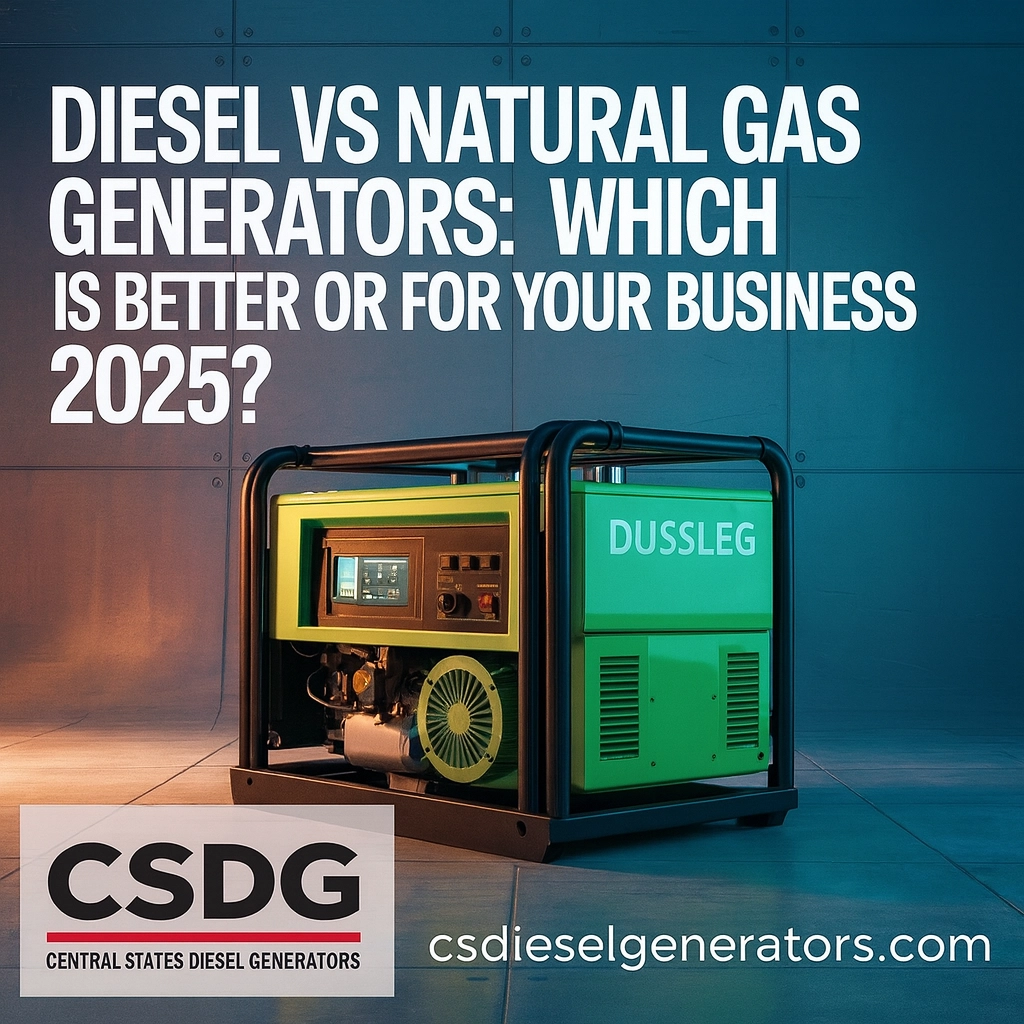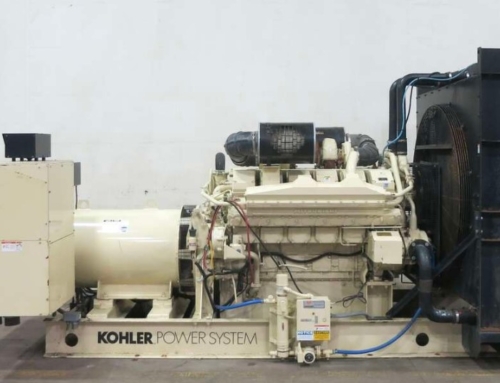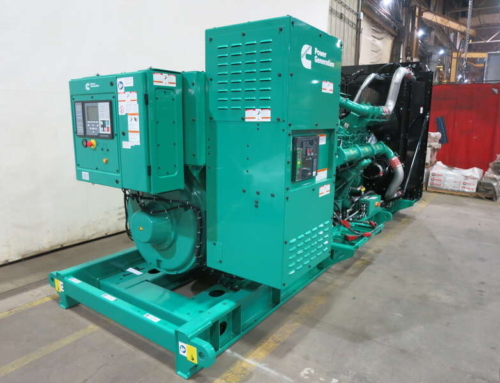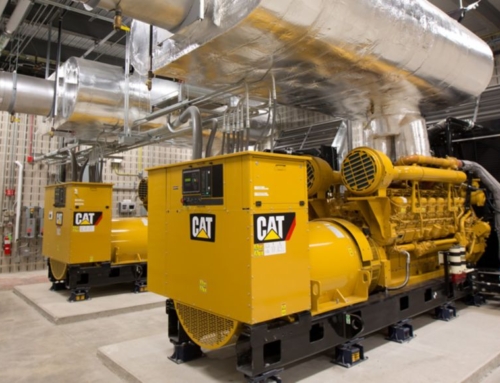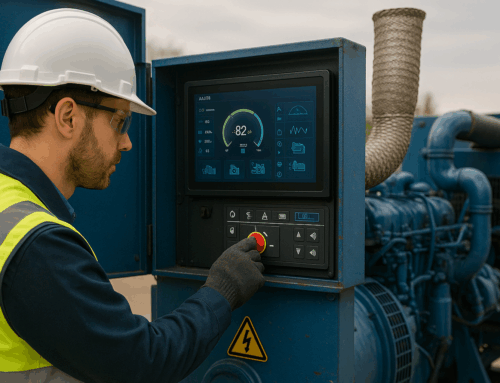When choosing backup power for your business, the diesel vs natural gas generator debate isn't just about fuel type—it's about finding the right fit for your specific needs, location, and budget. In 2025, both technologies offer distinct advantages, but the "better" choice depends entirely on your business priorities.
The short answer: Diesel generators generally offer superior efficiency, longer lifespan, and better reliability for critical business applications, while natural gas generators provide lower fuel costs, cleaner emissions, and easier installation in urban areas with existing gas infrastructure.
Let's break down everything you need to know to make the right choice for your business.
Why Diesel Generators Remain the Gold Standard
Diesel generators have earned their reputation as the workhorse of commercial backup power. These systems deliver unmatched efficiency and durability, making them the go-to choice for businesses that can't afford power interruptions.
Efficiency That Saves Money Long-Term
Diesel generators are significantly more efficient than natural gas alternatives, using less fuel to generate the same amount of power. This efficiency stems from diesel's compression ignition system and higher energy density—diesel contains roughly 129 BTU compared to natural gas's 37 BTU per unit.
This efficiency advantage becomes especially pronounced during high-load situations. When your business needs maximum power output, diesel generators maintain their efficiency while natural gas units often struggle to keep up.
Built to Last Decades
The construction quality of diesel generators sets them apart. Most commercial diesel units run at 1800 RPM instead of 3600 RPM, which significantly reduces wear on internal components. Combined with robust liquid cooling systems, this translates to longer equipment life and fewer replacement costs over time.
Many businesses find their diesel generators lasting 20-30 years with proper maintenance, while natural gas units typically need replacement after 10-15 years of heavy use.
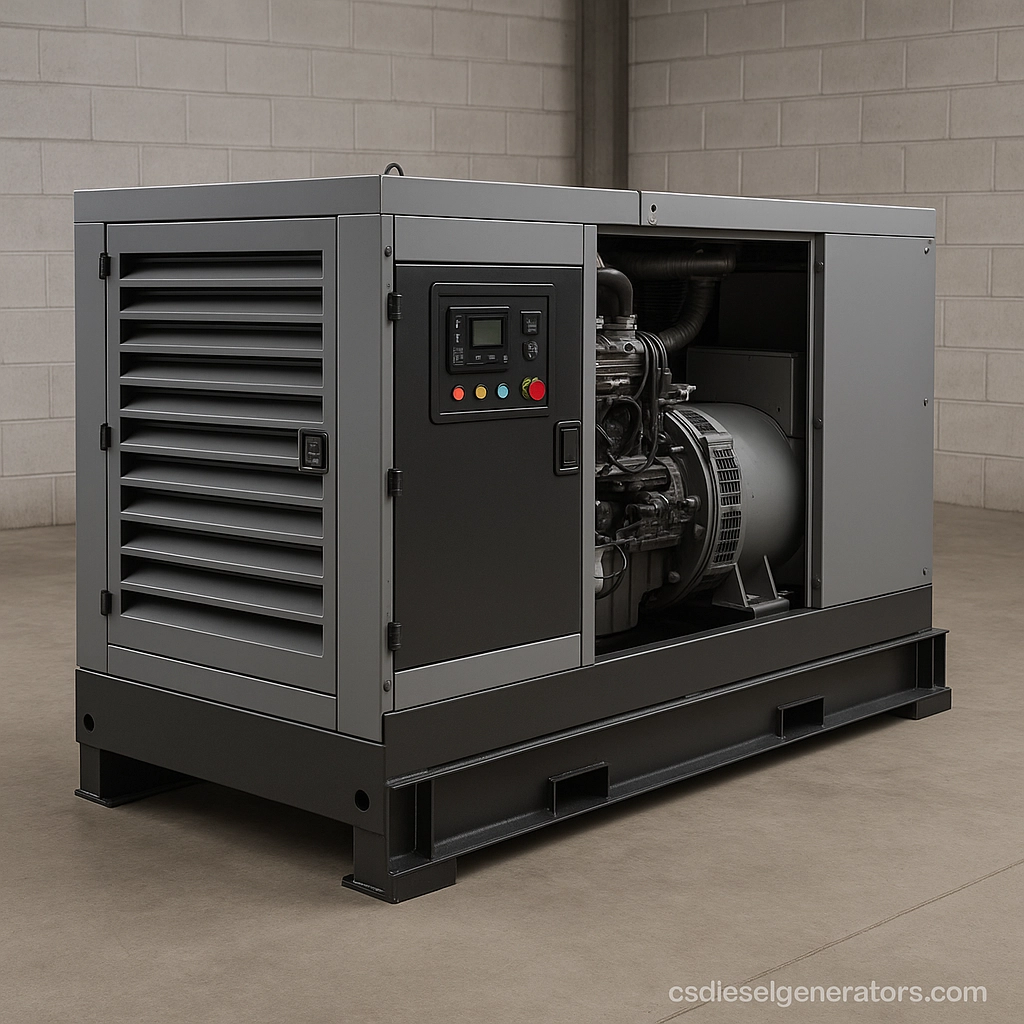
Complete Energy Independence
One of diesel's biggest advantages is fuel independence. You can store diesel on-site, meaning your backup power doesn't rely on external pipelines or utility infrastructure. During natural disasters or widespread power outages, this independence can be the difference between staying operational and shutting down.
Ready to explore your diesel generator options? Browse our extensive selection of 500kW generators and 1000 kW generators to find the right power solution for your business.
The Natural Gas Generator Advantage
Natural gas generators have carved out their own niche, especially in urban business environments. They offer compelling benefits that make them attractive for many commercial applications.
Lower Initial Investment
When your facility already has natural gas infrastructure, installation costs drop dramatically. You don't need fuel storage tanks, fuel management systems, or the additional safety equipment required for diesel storage. This can save thousands of dollars in upfront costs.
Predictable Fuel Costs
Natural gas pricing tends to be more stable than diesel, making it easier to budget for operational costs. While diesel prices fluctuate with oil markets, natural gas rates typically remain more consistent year-over-year.
Environmental Benefits
Natural gas generators produce approximately 30% less carbon dioxide than diesel generators. For businesses with sustainability goals or strict environmental regulations, this cleaner burning fuel can help meet compliance requirements and corporate responsibility objectives.
Always-Available Fuel Supply
With a direct pipeline connection, you never have to worry about fuel delivery, storage, or degradation. The gas flows continuously as long as the pipeline remains intact.
Head-to-Head Comparison
| Factor | Diesel Generators | Natural Gas Generators |
|---|---|---|
| Fuel Efficiency | Superior (129 BTU/unit) | Lower (37 BTU/unit) |
| Initial Cost | Higher equipment cost | Lower (with existing gas lines) |
| Fuel Costs | Higher, volatile pricing | Lower, stable pricing |
| Lifespan | 20-30 years typical | 10-15 years typical |
| Startup Time | 10-15 seconds | Similar |
| Fuel Supply | Independent storage | Pipeline dependent |
| Maintenance | More intensive | Simpler |
| Emissions | Higher CO2 output | 30% less CO2 |
| Location Flexibility | Works anywhere | Limited to gas service areas |
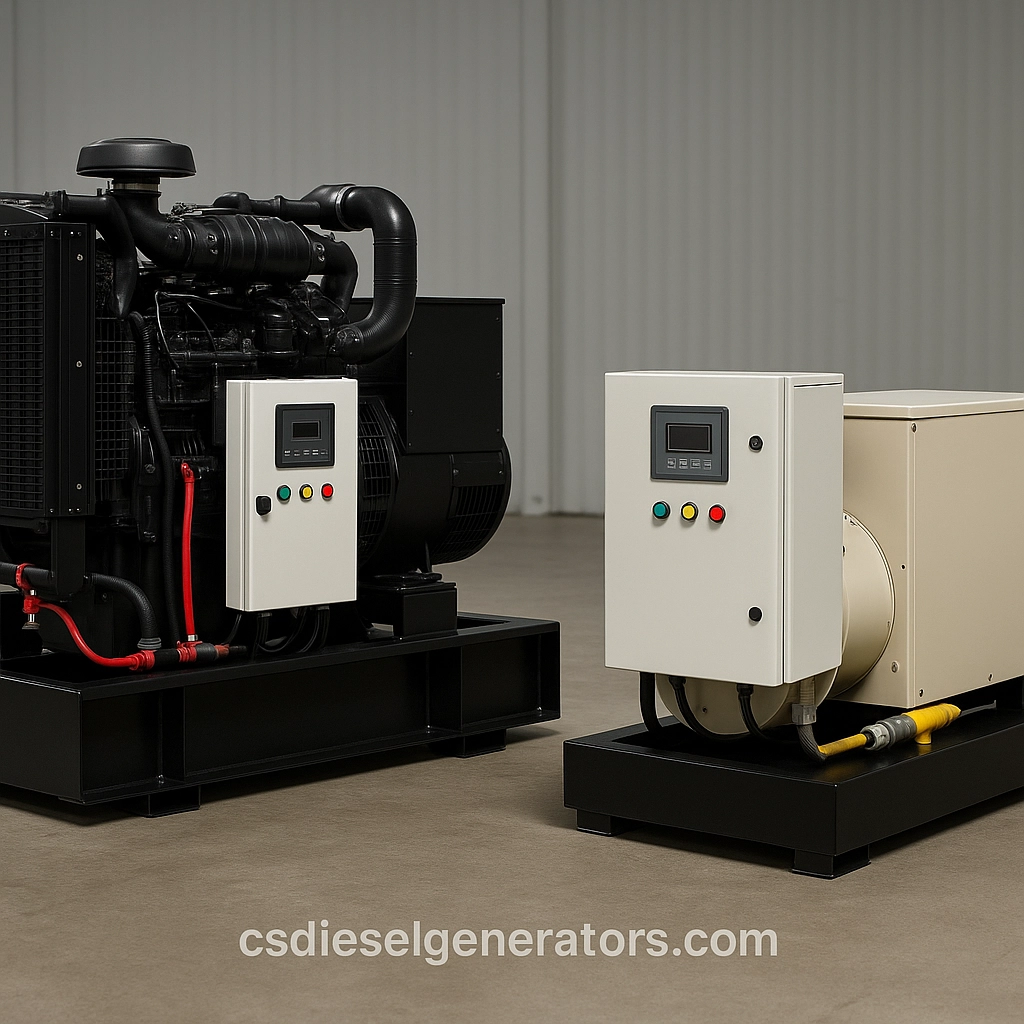
Making the Right Choice for Your Business
Choose Diesel Generators If:
You're in a rural or remote location. Natural gas infrastructure simply isn't available everywhere. If your business operates outside urban areas, diesel is likely your only practical option.
Reliability is non-negotiable. Hospitals, data centers, manufacturing facilities, and other critical operations need the maximum reliability that diesel provides. When downtime costs thousands per minute, the superior dependability of diesel generators justifies the higher investment.
You have heavy power demands. Large facilities requiring 2000 kW generators or multiple units benefit from diesel's efficiency under high loads.
You want energy independence. Businesses concerned about supply chain disruptions or natural disasters appreciate having fuel stored on-site.
Choose Natural Gas Generators If:
You're in an urban area with gas service. Cities and suburban business districts usually have natural gas infrastructure, making installation straightforward and cost-effective.
Environmental impact matters. Companies with sustainability initiatives or environmental compliance requirements may prefer the cleaner emissions profile.
You want lower operating costs. The combination of cheaper fuel and simpler maintenance can add up to significant savings over time.
Your power needs are moderate. Offices, retail stores, and smaller facilities with 250kW generator or 400 kW generators requirements often find natural gas sufficient for their needs.
Special Considerations for 2025
Regulatory Changes
EPA Tier 2 compliance requirements continue shaping the generator market. Modern diesel generators like our Cummins DQKAN series meet these stringent standards while maintaining excellent performance.
Technology Improvements
Both diesel and natural gas generators have seen significant technological advances. Modern control systems provide better monitoring, remote management capabilities, and improved fuel efficiency across both fuel types.
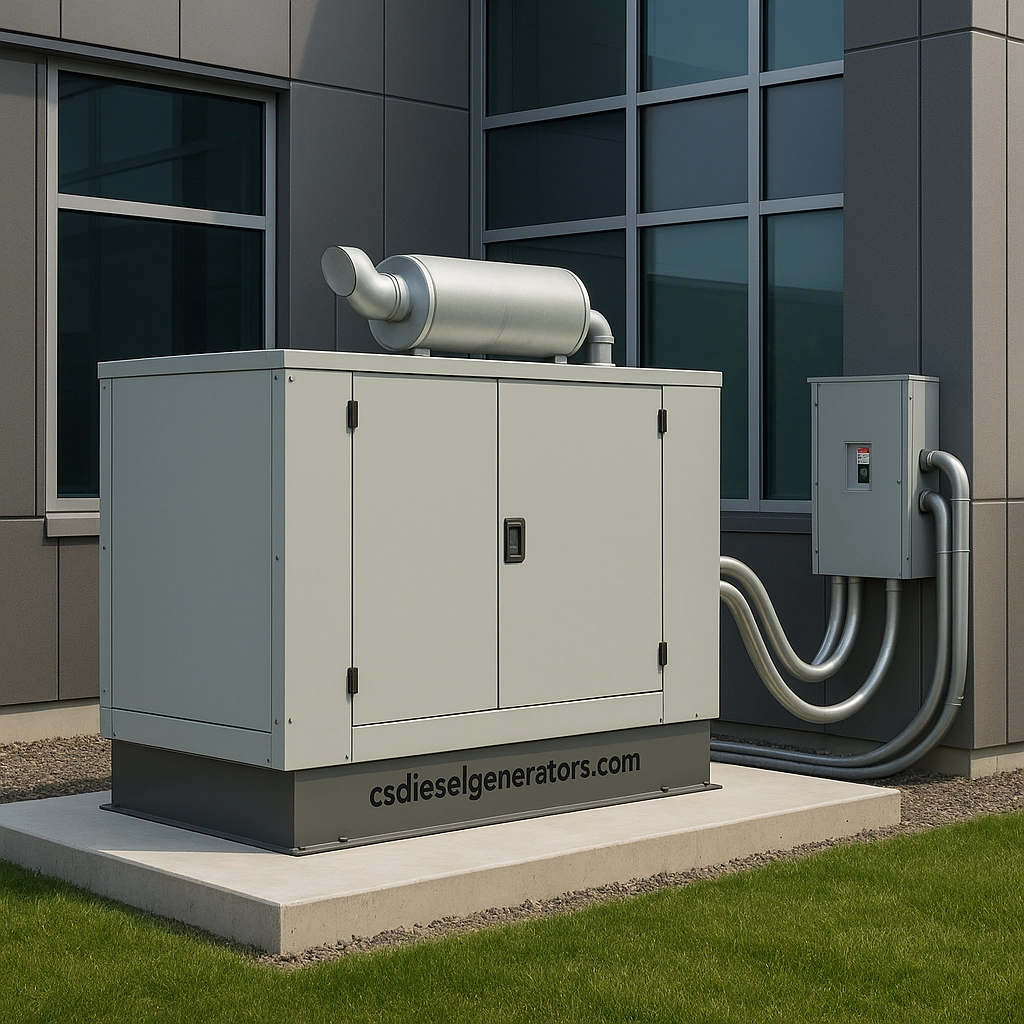
Infrastructure Resilience
Recent weather events and grid instability have highlighted the importance of fuel independence. Businesses are increasingly valuing the autonomy that comes with on-site fuel storage.
Getting Expert Guidance
Choosing between diesel and natural gas generators involves numerous technical and financial considerations. Our team at Central States Diesel Generators has helped hundreds of businesses navigate this decision.
We'll evaluate your specific requirements including:
- Power demands and load profiles
- Location and infrastructure availability
- Budget constraints and financing options
- Regulatory requirements
- Long-term operational goals
Need help deciding? Contact our team for a personalized consultation. We'll assess your facility's needs and recommend the optimal generator solution—whether that's diesel, natural gas, or a hybrid approach.
Moving Forward with Confidence
The diesel vs natural gas generator decision isn't one-size-fits-all. Both technologies serve important roles in commercial backup power, and the right choice depends on your unique circumstances.
Diesel generators excel when you need maximum reliability, efficiency, and independence. Natural gas generators shine when you want lower costs, cleaner emissions, and simplified installation.
Whatever you choose, investing in quality backup power protects your business from costly outages and keeps operations running when the unexpected happens.
Ready to explore your options? Browse our complete inventory at csdieselgenerators.com or contact us today for personalized recommendations based on your specific power requirements.

